India’s Precision Medicine: A Vision Hindered by Biobank Regulations
India’s Precision Medicine: A Vision Hindered by Biobank Regulations
Precision medicine, a transformative approach to healthcare, is redefining the landscape of disease diagnosis and treatment. From groundbreaking personalised healthcare solutions to innovations like mRNA vaccines and gene-editing technologies, the field promises a new era in medical science. Yet, as India stands on the cusp of this revolution, a significant hurdle looms: the lack of robust biobank regulations.The Promise of Precision Medicine
In recent years, precision medicine has witnessed remarkable achievements. Through gene therapy, researchers have restored vision in individuals with genetic mutations, while in the U.K., scientists have reversed diabetes using reengineered stem cells. The rapid development of COVID-19 vaccines using the mRNA platform, which earned a Nobel Prize, further underscores the potential of precision medicine.India’s Growing Market
The Indian precision medicine market is burgeoning, with projections estimating a value exceeding $5 billion by 2030. Initiatives like the BioE3 policy and the approval of NexCAR19, a domestically developed CAR-T cell therapy, mark significant strides. However, the true potential of these advancements lies in aligning biobank regulations with international standards.The Biobank Conundrum
 While countries like the U.K., U.S., and Japan have comprehensive biobank regulations ensuring data protection and privacy, India’s framework remains fragmented. The absence of a single authority to regulate biobanks and the lack of penalties for misconduct create risks of ethical violations and undermine public confidence. As the ICMR guidelines illustrate, participants often consent to provide samples without clarity on data usage, raising concerns about privacy and potential discrimination.
While countries like the U.K., U.S., and Japan have comprehensive biobank regulations ensuring data protection and privacy, India’s framework remains fragmented. The absence of a single authority to regulate biobanks and the lack of penalties for misconduct create risks of ethical violations and undermine public confidence. As the ICMR guidelines illustrate, participants often consent to provide samples without clarity on data usage, raising concerns about privacy and potential discrimination.
A Path Forward
To harness the full potential of precision medicine, India must establish stringent biobank regulations. Aligning with global standards will not only bolster public trust but also position India as a leader in next-generation therapeutics. As part of international groups like the Quad and BRICS, India has the opportunity to expand its pharmaceutical leadership and enhance its soft diplomatic efforts.Manjeera Gowravaram, a PhD in RNA biochemistry, provides insightful analysis on the intersection of science and policy.
Discover more from Cameron Academy
Subscribe to get the latest posts sent to your email.
More Articles
Getting licensed or staying ahead in your career can be a journey—but it doesn’t have to be overwhelming. Grab your favorite coffee or tea, take a moment to relax, and browse through our articles. Whether you’re just starting out or renewing your expertise, we’ve got tips, insights, and advice to keep you moving forward. Here’s to your success—one sip and one step at a time!
Federal Reserve Rate Cut: Impact on Housing Market

Mortgage Rates: A Mixed Bag
Mortgage rates, which soared to nearly 8% last year, have already begun to decline, even before the Fed’s official announcement. Currently, long-term fixed-rate mortgages are hovering around 6.2%, the lowest since February 2023. However, experts like Charlie Dougherty from Wells Fargo suggest that while rates might dip slightly, significant reductions are unlikely in the immediate future.Impact on Home Prices
While lower mortgage rates might seem like a boon for homebuyers, they could paradoxically drive up housing prices. As rates drop, more buyers may re-enter the market, intensifying competition for a limited supply of homes. This scenario is particularly daunting for first-time buyers, who have already faced challenges from bidding wars and high prices.The Supply Dilemma
The U.S. housing market is grappling with a significant supply shortage, estimated to be millions of units short. High interest rates have previously hampered smaller developers from initiating new projects. The recent rate cut could ease this burden, encouraging more construction and potentially alleviating some of the supply constraints.
Affordability Challenges Persist
Despite the potential for lower monthly payments due to reduced mortgage rates, the overarching issue of affordability remains. Home prices have surged by approximately 50% since early 2020, outpacing average household income growth, according to Dougherty. This disparity continues to place homeownership out of reach for many.As the market adjusts to these changes, it is clear that the Federal Reserve’s rate cut is just one piece of a complex puzzle. For more insights, visit the original article on NPR.
Discover more from Cameron Academy
Subscribe to get the latest posts sent to your email.
Binance Integrates USDT on TON: A New Era for Stablecoin Transactions
Binance Integrates USDT on TON: A New Era for Stablecoin Transactions
In a groundbreaking move, Binance has announced the integration of Tether’s USDT token on The Open Network (TON), a development that promises to enhance liquidity and reduce transaction fees for its users. As of June 21, Binance users can now deposit and withdraw USDT on TON, marking a significant step in the evolution of stablecoin transactions.Enhanced Liquidity and Cost-Effective Transactions
The integration allows for greater flexibility in moving stablecoin liquidity onto the TON blockchain. This move is expected to improve transaction speeds and offer a more cost-effective method for handling USDT transactions. Binance’s official announcement encourages users to check their assigned token deposit addresses and the smart contract address on TON, ensuring seamless and compliant transactions.
Regulatory Landscape: Preparing for MiCA
This integration comes at a crucial time, with anticipated regulatory changes under the Markets in Crypto-Assets Regulation (MiCA) in the European Economic Area (EEA). These changes could impose restrictions on unauthorized stablecoins like USDT. Binance has proactively advised its users to stay informed about these developments to ensure compliance and avoid potential disruptions to their crypto activities.
In a related development, the cryptocurrency exchange Uphold has announced plans to delist USDT and five other stablecoins due to the upcoming MiCA regulations. This highlights the importance of staying updated with regulatory shifts that could impact the stablecoin market.
Telegram’s Vision for the TON Blockchain
Adding to the momentum around the TON blockchain, Telegram founder Pavel Durov recently announced plans to tokenize stickers and emojis on the platform using TON. Speaking at Token2049 in Dubai, Durov emphasized the importance of privacy and freedom, aligning with the core principles of blockchain technology. His vision includes building Telegram functionalities on The Open Network, further integrating USDT and exploring ad revenue-sharing options.
This strategic integration by Binance, coupled with Telegram’s commitment to TON, underscores a broader trend in blockchain utilization, paving the way for innovative applications and improved user experiences.
“`
Discover more from Cameron Academy
Subscribe to get the latest posts sent to your email.
Finding the Ideal CRM for Real Estate
The Quest for the Perfect CRM in Real Estate
In the bustling world of real estate, where client management and property listings are the lifeline of business, a reliable CRM (Customer Relationship Management) system becomes an indispensable tool. As competition intensifies, with agents vying to outshine each other, choosing the right CRM can be the key to staying ahead.The article from Zapier offers a comprehensive analysis of the best CRM software available in 2024, tailored specifically for real estate professionals. It meticulously evaluates various CRM platforms, ensuring agents can streamline operations and enhance their competitive edge.
The Top Contenders
The article highlights eight standout CRM systems, each with unique features catering to different needs within the real estate sector:- Follow Up Boss: Ideal for brokerages, this CRM excels in integration, connecting seamlessly with over 250 apps.
- Sierra Interactive: An all-in-one solution known for its powerful lead management and nurturing tools.
- LionDesk: Focused on client communication, it offers AI-powered lead follow-up.
- IXACT Contact: Perfect for new agents, with a six-month free trial to help rookies get started.
- CINC: Known for buying leads, it features excellent lead organization and team management capabilities.
- Lofty: Specializes in automation with robust team management features.
- Top Producer: Focused on lead nurturing, offering direct MLS integration.
- Real Geeks: Best suited for small teams, with easy-to-build, SEO-optimized websites.
Key Features to Consider
When selecting a CRM, the article emphasizes several crucial features that can make or break the decision:- Lead Generation: Effective tools for capturing and tracking leads are essential.
- Workflow Management: A streamlined workflow is crucial in managing tasks and deadlines.
- Integration and Automation: Seamless integration with existing tools and automation of routine tasks can save valuable time.
- Mobility and Accessibility: A mobile-friendly, cloud-based CRM ensures productivity on the go.
- Ease of Use: User-friendly interfaces are key to quick adoption and efficient use.
- Industry Focus: Real estate-specific features, such as property tracking and commission calculations, are vital.
Conclusion
The right CRM can transform a real estate business, making it more organized, efficient, and ultimately more successful. As agents weigh their options, considering personal and business needs against the features offered by each CRM is critical. The original Zapier article serves as an invaluable resource, guiding real estate professionals through the labyrinth of CRM choices.Discover more from Cameron Academy
Subscribe to get the latest posts sent to your email.
The Real Estate Landscape Shifts: Navigating the NAR Settlement
The Real Estate Landscape Shifts: Navigating the NAR Settlement
In the ever-evolving world of real estate, the recent NAR multimillion dollar settlement has sent ripples through the industry, leaving brokers and agents scrambling to adapt. As the dust settles, questions loom over how these changes will impact both homebuyers and sellers.
Understanding the NAR Settlement
The settlement, coming on the heels of a sexual harassment scandal, is a pivotal moment for the National Association of Realtors (NAR). At the heart of the matter is the restructuring of buyer broker compensation, which can no longer be included in the Multiple Listing Service (MLS). Instead, buyers must now sign a Buyer Representation Agreement.Implications for Buyers and Sellers
While this shift aims to create transparency, it also raises concerns about the future of real estate transactions. Emily Ross, a seasoned Realtor from Austin, Texas, shares her insights on the potential challenges. She notes that the traditional 5-6% sales commission may become a relic of the past, with sellers possibly adopting alternative methods like buyer credits to navigate the new landscape.The Role of Real Estate Agents
Despite the upheaval, Ross emphasizes the enduring value of real estate agents. In a world where buyers might have to shoulder more responsibilities, agents continue to play multifaceted roles—from negotiators to therapists. The question remains: how will these professionals be compensated fairly for their expertise?Looking Ahead
As the industry grapples with these changes, Ross advises potential buyers to act swiftly, suggesting that those looking to purchase should aim to close deals by July 1 to avoid uncertainty. Meanwhile, the real estate community must decide how to adapt without compromising the integrity of their work. In the words of Emily Ross, the real estate journey is akin to a reality TV show, full of unexpected twists and turns. As the industry moves forward, both buyers and sellers must prepare for a new era in real estate transactions, where adaptability and resilience will be key.Discover more from Cameron Academy
Subscribe to get the latest posts sent to your email.
Revolutionizing Real Estate with ChatGPT
Revolutionizing Real Estate with ChatGPT
The real estate industry is on the brink of a technological revolution, thanks to the versatile capabilities of ChatGPT, a chatbot developed by OpenAI. Since its online debut on November 30, 2022, ChatGPT has been transforming how real estate agents and brokers conduct business, offering innovative solutions to streamline tasks and boost productivity.OpenAI, in partnership with Microsoft, ensures that ChatGPT remains a staple in the tech world, continually evolving with enhancements to its user interface. While free versions are available, the premium Plus and Enterprise users can leverage real-time data access, making it a powerful tool for industry professionals.
12 Game-Changing Applications for Real Estate Professionals
Real estate agents, often overwhelmed with writing tasks and market data analysis, can now turn to ChatGPT for support. Here are 12 ways this AI tool can revolutionize your business:- Email Campaigns: Create personalized emails that reflect your brand, moving away from generic CRM templates.
- Property Descriptions: Generate standout property listings that capture attention and drive engagement.
- Social Media Content: Enhance your online presence with engaging posts tailored for platforms like Facebook, Instagram, and LinkedIn.
- Content Marketing: Produce blog posts and articles that showcase your expertise and attract organic web traffic.
- Neighborhood Information: Offer detailed guides on local amenities, schools, and hotspots.
- FAQ Responses: Use ChatGPT to provide instant answers to common client questions, enhancing customer service.
- Automated Email Responses: Save time by automating responses to frequent inquiries.
- Market Reports: Demonstrate your market knowledge with comprehensive reports generated by ChatGPT.
- Language Translation: Break language barriers and cater to a diverse client base with multilingual support.
- Buyer and Seller Guides: Create detailed guides to assist clients through the buying or selling process.
- Video Scripts: Craft scripts for video content to engage your audience on platforms like YouTube and Instagram.
- Market Insights: Stay informed with real-time data and trends to provide clients with the latest market insights.
Mastering ChatGPT Prompts
To maximize ChatGPT’s potential, it’s crucial to craft effective prompts. Here are some best practices:- Be Clear and Specific: Clearly state your requirements, such as asking for recent sales data for a specific ZIP code.
- Use Open-Ended Questions: Encourage detailed responses by framing questions in an open-ended manner.
- Break Down Complex Questions: Simplify multi-part inquiries for more accurate results.
- Include Context: Provide background information to help ChatGPT understand the question’s context.
- Specify Data and Sources: Direct ChatGPT to use specific data sources when necessary.
For more insights, see the full article on HousingWire.
Conclusion: Embrace the Future
The integration of ChatGPT into real estate practices is not just a trend but a necessity for staying competitive. By utilizing this AI tool, agents can work smarter, not harder, and focus on what truly matters—building relationships and closing deals.My ChatGPT Cheat Sheet
Not sure where to start? Here are 20 prompts to kickstart your journey with ChatGPT in real estate:- “Can you provide a brief overview of the factors that affect property valuations?”
- “What are some effective home staging tips to make properties more appealing to potential buyers?”
- “Give me insights into the current real estate market trends in [Your City].”
- “What should I consider when advising a client on purchasing an investment property?”
- “Can you create a guide for first-time homebuyers on the steps to purchasing a home?”
These prompts are just a starting point. Feel free to explore and experiment with ChatGPT, as you can’t break anything, and the AI won’t get mad at you.
CSS for Styling
“`Discover more from Cameron Academy
Subscribe to get the latest posts sent to your email.
Exploring the Best CRM Solutions for Real Estate in 2024
Exploring the Best CRM Solutions for Real Estate in 2024
In the dynamic world of real estate, managing relationships is paramount. The TechRadar article delves into the best CRM software solutions for 2024, highlighting their potential to transform how realtors engage with clients. By optimizing customer interactions, these tools can significantly reduce operational costs and boost sales.The Role of CRM in Real Estate
For real estate professionals, CRM systems are not just about storing contacts; they are about building lasting relationships. The article emphasizes that successful agencies leverage top CRM software to enhance customer experiences and streamline communications, both in the office and on-site.Top CRM Providers for Real Estate
- Freshsales: Known for its intuitive interface and advanced AI features, Freshsales offers a customizable experience, making it a top choice for realtors. However, its lead generation tools are limited to enterprise plans. Read the full Freshsales review.
- HubSpot: With a modular approach, HubSpot allows users to start with a free plan and scale up as needed. Its extensive third-party integrations make it a versatile choice. Discover more in the HubSpot CRM review.
- Zoho CRM: Ideal for those already using Zoho’s suite, this CRM offers seamless integration and powerful lead generation tools. Read the Zoho CRM review for more details.
- Insightly: Known for its project management capabilities, Insightly is perfect for larger brokerages. It offers a customizable dashboard and robust automation features. Check out the Insightly review.
- BoomTown: Specifically designed for real estate, BoomTown offers realtor-focused features and extensive lead-generation capabilities. Its integrations are limited, but it excels in real estate-specific functionalities.
- Monday.com: A flexible project management tool that supports integrations with other platforms, Monday.com is praised for its user-friendly interface and transparency-promoting features. Learn more in the Monday.com review.
Choosing the Right CRM
Selecting the appropriate CRM requires understanding your unique business needs. Whether it’s lead generation, customization, or automation, each CRM offers distinct advantages. The article suggests considering factors like existing workflows, budget constraints, and required integrations when making a decision.Conclusion
The TechRadar article provides a comprehensive guide to the best CRM solutions for real estate in 2024. By leveraging these tools, real estate professionals can enhance client relationships, optimize operations, and ultimately drive sales growth.Discover more from Cameron Academy
Subscribe to get the latest posts sent to your email.
7 Benefits of Hiring an Experienced Real Estate Agent in Jamaica
1. Regional Knowledge
Jamaica’s diverse neighborhoods and landscapes each offer unique charms and subtleties. An expert real estate agent possesses in-depth knowledge of the local market, including the best neighborhoods, average property prices, and current trends. This expertise is invaluable in helping clients find a neighborhood that aligns with their preferences and lifestyle.2. Access to Exclusive Listings
Experienced agents often have access to private listings not readily available to the public. For those seeking unique and desirable properties, these off-market opportunities can be a treasure trove, enabling clients to discover hidden gems they might otherwise miss.3. Negotiation Skills
Negotiating prices is a crucial aspect of real estate transactions. Skilled Jamaican agents bring honed negotiation skills to the table, assisting clients in securing the best deals, whether buying or selling a property.4. Legal Expertise
Real estate transactions involve complex legalities. Jamaican agents are well-versed in the relevant laws and regulations, ensuring a smooth process and helping clients avoid costly mistakes by managing all necessary documentation accurately.5. Efficient Marketing
Effective marketing is essential to attract potential buyers when selling a property. Seasoned agents leverage a network of professionals and resources to market properties efficiently, offering services such as virtual tours and professional photography to ensure maximum exposure.6. Time and Stress Savings
The real estate process can be time-consuming and stressful. Hiring an experienced agent alleviates this burden, as they manage all the details and coordinate with stakeholders, allowing clients to focus on other aspects of their lives.7. Valuable Connections
Experienced agents in Jamaica often have established relationships with appraisers, contractors, lenders, and inspectors. These connections are crucial in expediting the buying or selling process, providing clients with access to reliable professionals when needed.Conclusion
Engaging a knowledgeable real estate agent in Jamaica can lead to a successful and stress-free transaction. Their local expertise, negotiation skills, and access to exclusive listings position clients to make informed decisions and achieve their real estate goals. Whether buying or selling, the guidance of an experienced agent is invaluable in navigating Jamaica’s vibrant real estate market.For those seeking professional assistance, Century 21 Jamaica offers a team of registered, reliable agents with extensive listings. Clients can also list their properties for sale or rent to attract genuine buyers.

Discover more from Cameron Academy
Subscribe to get the latest posts sent to your email.
New Real Estate Tax Amendments: Implications for the Energy Sector
The proposed legislative changes, set to take effect on January 1, 2025, aim to refine the definition of taxable ‘structures.’ The new definition explicitly includes only the building parts of photovoltaic (PV) farms, energy storage facilities, and standalone industrial facilities as liable for the 2% RET. This adjustment is expected to reduce tax burdens on elements previously deemed non-essential to construction under a broader interpretation.
In a departure from earlier drafts, the ambiguous concept of “technical-functional entirety” has been removed. Furthermore, “free-standing technical facilities permanently attached to the ground” have been exempted from RET responsibilities, signaling a commitment to fiscal continuity that primarily benefits renewable energy sectors.
The draft law also seeks to clarify the inclusion of “building facilities” under the RET scope, recognizing their role in ensuring the functional use of a building or structure. However, the broad definition might still lead to ambiguities in tax application, prompting businesses to seek further clarity.
To accommodate these changes, the deadline for filing RET returns for 2025 has been extended to March 31, 2025. This extension is designed to give taxpayers sufficient time to adapt to the new regulations and assess their impact on business operations.
The Ministry of Finance’s approach reflects a willingness to engage with stakeholders, incorporating demands from various industries. However, the broad definitions of ‘structure’ and ‘permanent attachment to the ground’ continue to present interpretational challenges, necessitating advisory consultations.
As the legislative process progresses, a resolution by the end of October is crucial to ensure industry compliance and the seamless integration of the updated RET framework into business strategies. The brief consultation period, concluding on September 9, 2024, is a pivotal phase for crystallizing stakeholder interests before government approval and parliamentary discussion.
Businesses are advised to proactively evaluate the implications of these legal reforms on their RET obligations and adjust their fiscal strategies accordingly. For further guidance, the Dentons Tax Team is available to provide comprehensive support and assistance.
This article highlights the dynamic interplay between legislative amendments and industrial adaptation, showcasing an evolving real estate tax landscape. For more details, you can read the original article on Dentons.
Discover more from Cameron Academy
Subscribe to get the latest posts sent to your email.
CoStar Group’s Acquisition of Matterport: A $1.6 Billion Expansion
CoStar Group Expands with Major Acquisition
In a monumental move within the real estate technology sector, CoStar Group has announced its acquisition of Matterport, a leader in photorealistic 3D virtual property tours. This $1.6 billion transaction is set to be split evenly between cash and stock, marking a significant expansion for CoStar, which operates renowned online property marketplaces such as Apartments.com and Homes.com.
According to the official announcement, Matterport shareholders will receive $2.75 in cash and an additional $2.75 in CoStar stock for each share they hold. This strategic acquisition underscores CoStar’s commitment to enhancing its digital offerings and solidifying its position as a leader in the property technology space.
Matterport’s Impressive Reach
Matterport has built a formidable reputation with its cutting-edge 3D virtual tours, known as digital twins, which provide immersive property experiences. Utilizing a global network of photographers and capture service technicians, the company produces thousands of these tours monthly. Matterport’s expansive spatial property data library now boasts 12 million spaces, covering an estimated 38 billion square feet across 177 countries.
This acquisition aligns with CoStar’s vision to integrate advanced technology into its platforms, offering users a comprehensive and interactive property search experience. By incorporating Matterport’s digital twin technology, CoStar aims to enhance the way properties are showcased online, providing a more detailed and engaging perspective for potential buyers and renters.
Industry Implications
The acquisition of Matterport by CoStar is poised to have significant implications for the real estate industry, particularly in how properties are marketed and viewed online. As virtual tours become increasingly popular, the integration of Matterport’s technology is expected to set new standards for property listings, offering unparalleled detail and realism.
For more information on this acquisition, you can read the original article on Globest.
Discover more from Cameron Academy
Subscribe to get the latest posts sent to your email.
Florida’s Real Estate Market: A Glimpse into 2024
Florida’s Real Estate Market: A Glimpse into 2024
If you’re in the market for a new home, you might be eagerly watching mortgage rates. According to NBC 6 South Florida, there’s potential good news on the horizon. Redfin’s 2024 housing predictions suggest that mortgage rates may steadily decline, possibly dipping into the 6% range. This could be a welcome relief for potential homebuyers who have been waiting for more favorable conditions.
Real Estate Broker Elisha Lopez notes, “With rates already dropping, interest rates and that little bug, that perception for buyers, especially first-time homebuyers that have been sitting on the sideline for over a year now waiting for rates to come down, it’s already triggering, I guess you could say, the hype that it’s time to buy.”

What to Expect in 2024
As we look towards 2024, Redfin anticipates an increase in new listings and home sales. However, Lopez warns that an influx of buyers could drive prices up due to heightened demand. “There’s more inventory now, but if you flood the market again with buyers that are going to start looking out anyway and then all those buyers that have been waiting, the natural thing that’s going to happen is that prices are going to go up because there’s so much demand again,” she explains.
Interestingly, while some areas in coastal Florida, like Cape Coral, may see a significant drop in prices due to the rising cost of home insurance linked to natural disaster risks, Miami’s housing market is expected to remain fiercely competitive. Lopez attributes this to Miami’s unique position as a melting pot that attracts international attention and interest.

Advice for Homebuyers
For those considering purchasing a home next year, especially first-time buyers, Lopez suggests connecting with a real estate agent to navigate the process. She emphasizes the importance of exploring financing options and notes that some sellers might be willing to cover closing costs, particularly if a listing has been on the market for some time.
Her final piece of advice? Negotiate. Even in a competitive market like South Florida, there’s always room to secure a better deal.

- Read more about the potential comeback of a century-old housing idea in a tough real estate market: here.
- Explore the dynamics of rising home prices across major U.S. cities, with a unique case in Austin: here.
Discover more from Cameron Academy
Subscribe to get the latest posts sent to your email.
“Real Estate Opportunities in Florida: Top Cities for Investment”
While not all urban areas in Florida are experiencing economic growth, certain cities have emerged as prime locations for investment. According to insights from GOBankingRates, four cities are particularly noteworthy for their potential.
Boca Raton
Boca Raton is experiencing a surge in demand, driven by a migration from the Northeast post-COVID-19. The opening of new restaurants and increased walkability have contributed to this trend. Victor Ballestas of Integra Investments notes the shift from older properties to newer developments, highlighting the city’s appeal as a safe investment due to its established coastal community status and ongoing growth.North Miami
North Miami’s appeal has been bolstered by the SoLe Mia Project, a transformative development that includes residential units, office space, retail venues, and more. Edgardo Defortuna, CEO of Fortune International Group, emphasizes the area’s potential for value increase, attracting young professionals and investors alike.Bonita Springs
Nestled on Florida’s southwest coast, Bonita Springs offers a serene environment with access to nature and abundant golfing. Mark Wilson of London Bay Development Group highlights the city’s low taxes and crime rates, coupled with its burgeoning population, as key factors driving market value and investment potential.Orlando
Beyond its famed theme parks, Orlando presents a wealth of investment opportunities. Robert Thorne of Urban Network Capital Group describes the city as an underrated gem, with a thriving tourism industry and job market fueling a real estate boom. Compared to other areas in Florida, Orlando offers more attainable prices with promising home value projections.
The original article from Yahoo Finance underscores the importance of careful research and market insight for successful real estate investment in Florida. As these cities continue to grow and evolve, they offer exciting prospects for those looking to capitalize on the state’s dynamic real estate market.
Discover more from Cameron Academy
Subscribe to get the latest posts sent to your email.
The Federal Reserve’s Interest Rate Cut: A Potential Game-Changer for Homebuyers
The Federal Reserve’s recent decision to cut its benchmark interest rate by half a percentage point has sent ripples through the housing market, offering a glimmer of hope for homebuyers. This unexpected move, described by Bill Banfield, chief business officer at Rocket Companies, as giving “a little extra,” comes at a time when mortgage rates have already seen a significant decline over the past year.
According to Bankrate’s national survey of large lenders, mortgage rates have fallen from 8.01 percent in October 2023 to 6.20 percent as of September 18. This shift by the Federal Reserve could potentially invigorate the housing market, encouraging both buyers and sellers to engage more actively.
Lisa Sturtevant, chief economist at Bright MLS, notes that declining interest rates are particularly beneficial for homebuyers facing affordability challenges. She anticipates that this reduction in borrowing costs will not only fuel demand but also increase the supply of homes available for sale, thereby stabilizing home prices in various local markets.
The Federal Reserve and the Housing Market
The Federal Reserve’s earlier rate hikes had a cooling effect on the housing market, leading to a sharp drop in home sales while pushing home prices to record highs. Now, with inflation on the decline, the Fed’s policy shift represents a pivotal moment in monetary policy.
Mike Fratantoni, chief economist at the Mortgage Bankers Association, suggests that if mortgage rates remain near current levels, the housing market could experience a stronger-than-usual fall season, with a potential rebound in activity next spring.
How the Fed Affects Mortgage Rates
Although the Federal Reserve does not directly set mortgage rates, its policies significantly influence them. Mortgage rates typically move in tandem with 10-year Treasury yields. The Fed’s actions set the overall tone, impacting how much consumers pay for home loans.
Historically, low mortgage rates have fueled housing booms, as seen in 2020 and 2021. However, when rates surged to levels unseen in two decades, the market slowed dramatically. Despite this, home prices reached unprecedented levels, with the nationwide median existing-home price hitting $422,600 in July, close to the all-time high of $426,900 in June.
Fratantoni points out that elevated mortgage rates and steep home-price growth have significantly reduced affordability. Yet, as rates decline, affordability could improve, potentially drawing more buyers into the market.
Next Steps for Borrowers
- Shop around for a mortgage: Conducting an online search can help find lenders offering lower rates and competitive fees. Savvy shopping can save thousands of dollars.
- Be cautious about ARMs: Adjustable-rate mortgages might seem tempting, but they come with the risk of higher future rates. Borrowers should avoid using ARMs as a crutch for affordability.
- Consider a home equity loan or HELOC: Homeowners can tap into their home equity with a HELOC, which might be more cost-effective than refinancing at higher rates.
Discover more from Cameron Academy
Subscribe to get the latest posts sent to your email.
Colliers’ Insights on APAC Cap Rates: Q1 2024 Report
Colliers’ Latest Insights on APAC Cap Rates
Colliers has unveiled its Q1 2024 APAC Cap Rates Report, shedding light on the performance across office, retail, and industrial sectors in 19 markets. This comprehensive analysis reveals that 11 of these markets have witnessed movements in cap rates.
“The Asian market remains stable, without any significant factors driving movements in cap rates,” states Dorothy Chow, Head of Valuation & Advisory Services at Colliers Hong Kong. However, Australia and New Zealand have experienced shifts in cap rates, particularly in the office and industrial sectors. The retail sector, meanwhile, has seen stability over the past quarter, with exceptions in Brisbane, Melbourne, and Sydney.
Dorothy Chow highlights that the stability in Asian markets is mainly due to oversupply and pressure on rents, leading to increased cap rates. The oversupply situation in some Asian markets will require time to absorb, with recovery hinging on overall business activities and economic conditions, placing additional pressure on rental growth.
Key Findings:
- Office Sector:
- Beijing is grappling with declining demand, resulting in high vacancy rates. Investors are wary of oversupply and falling rents.
- Bangkok has seen a slight uptick in cap rates due to changes in rental rates, though sales transactions remain limited.
- Shanghai faces challenges in attracting leasing demand, causing downward pressure on rents.
- Jakarta is experiencing an influx of new office supply, with businesses optimizing existing spaces instead of expanding.
- In Sydney and Auckland, significant asset sales are anticipated, which may provide clearer pricing benchmarks.
- Retail Sector:
- Beijing and Shanghai enjoyed robust retail performance during the Chinese New Year.
- Investors in Hong Kong remain cautious due to vacancy rates.
- Jakarta has seen increased visitor numbers and new brand entries, yet the competitive landscape with new malls keeps investors cautious.
- Industrial Sector:
- Hong Kong’s industrial sector remains stable, buoyed by positive import and export figures.
- Bangkok has witnessed increased sales transactions, while rental rates have remained flat.
- Beijing is dealing with declining rental rates and increased occupancy in neighboring cities, impacting the industrial market.
- Shanghai is experiencing cautious investment sentiment, leading to high cap rate expectations from investors.
For further insights, contact Dorothy Chow, Head of Valuation & Advisory Services at Colliers Hong Kong. You can access the full report here.


Discover more from Cameron Academy
Subscribe to get the latest posts sent to your email.
Exploring the Florida Real Estate Market: A Haven for Homebuyers
Exploring the Florida Real Estate Market: A Haven for Homebuyers
Florida has long been a beacon for those seeking a unique and diverse lifestyle, offering a vibrant real estate market that caters to a wide array of preferences and budgets. From luxurious oceanfront mansions and elegant condos to charming cottages, the state provides ample opportunities for both buyers and sellers. According to a recent article by Little Big Homes, the Florida housing market is poised for growth and transformation in 2024.Why Florida Remains a Hotspot for Homebuyers
Florida’s allure is multifaceted, drawing home seekers with its breathtaking scenery, vibrant communities, and year-round warm weather. The state’s landscape is adorned with pristine beaches, turquoise waters, and picturesque streets lined with towering palm trees. Its bustling city centers and quaint neighborhoods offer a rich tapestry of cultural attractions, fine dining, shopping, and entertainment.Moreover, Florida’s moderate cost of living, coupled with the absence of a state income tax, makes it an attractive destination for many. The state’s strong economy, bolstered by sectors such as tourism, aerospace, and manufacturing, further enhances its appeal.

Current Market Dynamics and Trends
The Florida real estate market is currently influenced by several factors, including the aftermath of the COVID-19 pandemic and rising inflation. The pandemic initially disrupted the market but later spurred growth due to record-low interest rates and the rise of remote work. This shift increased demand for properties in rural and suburban areas.Rising inflation has also impacted the market, with urban areas experiencing higher housing prices and living costs. As a result, there is a growing demand for residential properties outside major cities.
Market Conditions and Future Outlook
According to Redfin, the median home price in Florida is $401,100, reflecting a 1.5% increase from the previous year. Despite this rise, Florida homes remain relatively affordable compared to other booming markets, such as California. Inventory levels indicate a seller’s market, with a limited supply of homes leading to increased buyer competition and potentially higher prices.Sales activity has slowed, with a decrease in the number of homes sold year over year. However, the strong demand and limited inventory suggest this may be a temporary slowdown rather than a long-term trend.

Trends Shaping the Market
Several trends are shaping Florida’s real estate market, including net population migration, rising mortgage rates, and a booming vacation home market. The state has experienced significant population growth, contributing to increased demand for real estate. Meanwhile, rising mortgage rates have made it more challenging for buyers to secure financing, impacting sales volume.The vacation rental market is thriving, with areas like Indialantic achieving high occupancy rates. Additionally, property technology advancements, such as virtual tours and 3D mapping, are revolutionizing the buying process.
Guidance for Buyers and Sellers
For buyers, understanding market trends and fluctuations is crucial. Working with a qualified real estate agent can provide valuable insights and assistance throughout the buying process. Timing is also essential, with off-peak seasons potentially offering better deals.Sellers should focus on enhancing their property’s curb appeal, setting competitive prices, and marketing effectively to attract high offers. Consulting with a real estate agent can help navigate the complexities of the market and achieve favorable outcomes.
Conclusion
The Florida real estate market presents a dynamic landscape full of opportunities for both buyers and sellers. With its economic strength and high quality of life, the state is expected to continue attracting prospective homeowners. As the market evolves, staying informed and enlisting professional guidance will be key to success.Discover more from Cameron Academy
Subscribe to get the latest posts sent to your email.
Understanding the Shifting Sands of Consumer Behavior in 2024
Understanding the Shifting Sands of Consumer Behavior in 2024
In a world where consumer preferences are evolving at an unprecedented pace, businesses must stay ahead of the curve to remain competitive. According to a recent report by Exploding Topics, nine key trends in consumer behavior are set to shape the market landscape in 2024 and beyond.1. Diverse Payment Options: The New Norm
As eCommerce continues to flourish, consumers now expect a variety of payment methods at checkout. The “Buy Now, Pay Later” (BNPL) trend is particularly noteworthy, with searches for “BNPL” growing sixfold over the past five years. Companies like Afterpay and Sezzle are leading this charge, catering to the increasing demand for flexible payment solutions.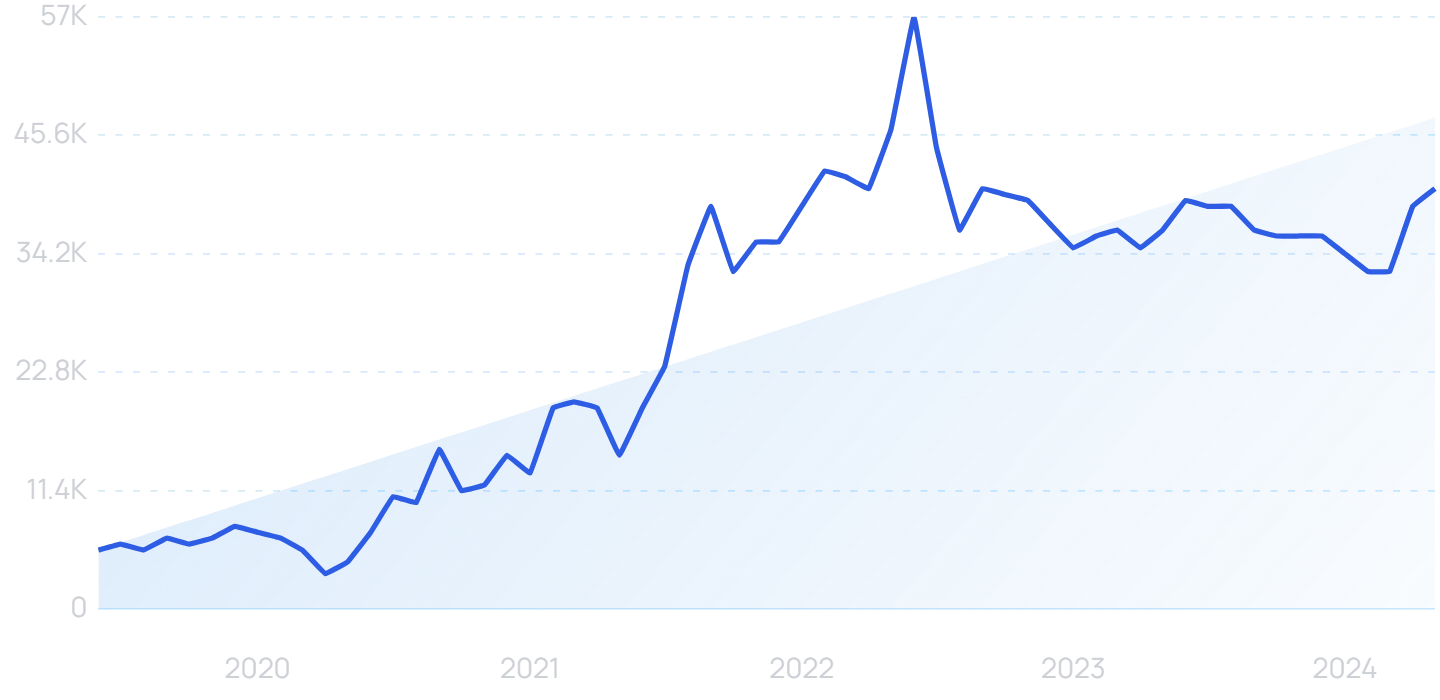
2. Expectation for Home Delivery
Consumers now anticipate that virtually everything, from eyeglasses to groceries, will be delivered to their doorstep. This shift has propelled the growth of direct-to-consumer brands, such as Warby Parker and Instacart, as they meet the demand for convenience.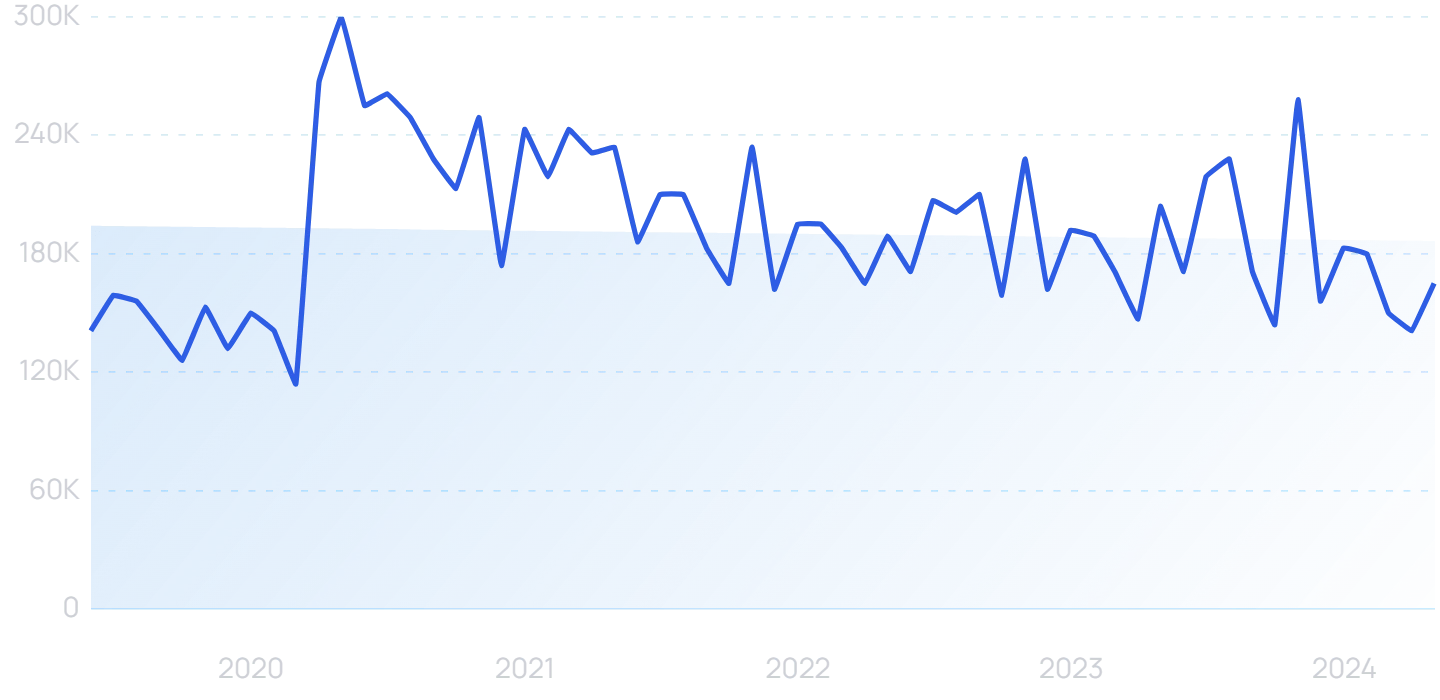
3. The Rise of Ethical and Sustainable Products
Sustainability and ethical practices are more than just buzzwords; they are key drivers of consumer decisions. A study by IBM indicates that 77% of consumers value these attributes in brands. This trend is evident in the increasing popularity of products like bamboo clothing, which offer a smaller environmental footprint.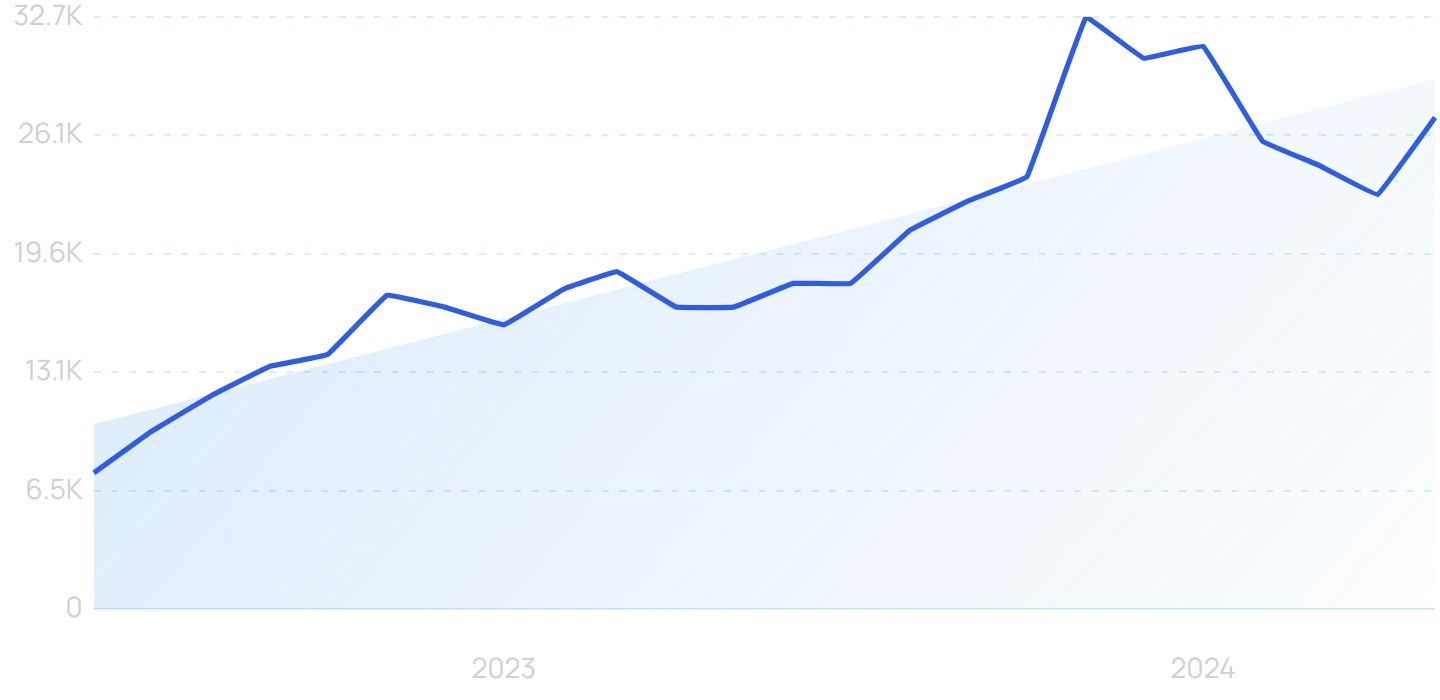
4. Health and Wellness at Home
The home has become a sanctuary for health and wellness, with consumers embracing at-home treatments like red light therapy. This trend underscores a shift towards personal health management within the comfort of one’s home.
5. Micro-Influencers: The New Power Players
The influence of social media personalities on consumer choices has not waned. However, the focus is shifting towards micro-influencers, who boast higher engagement rates. Their authentic and niche content resonates more effectively with targeted audiences.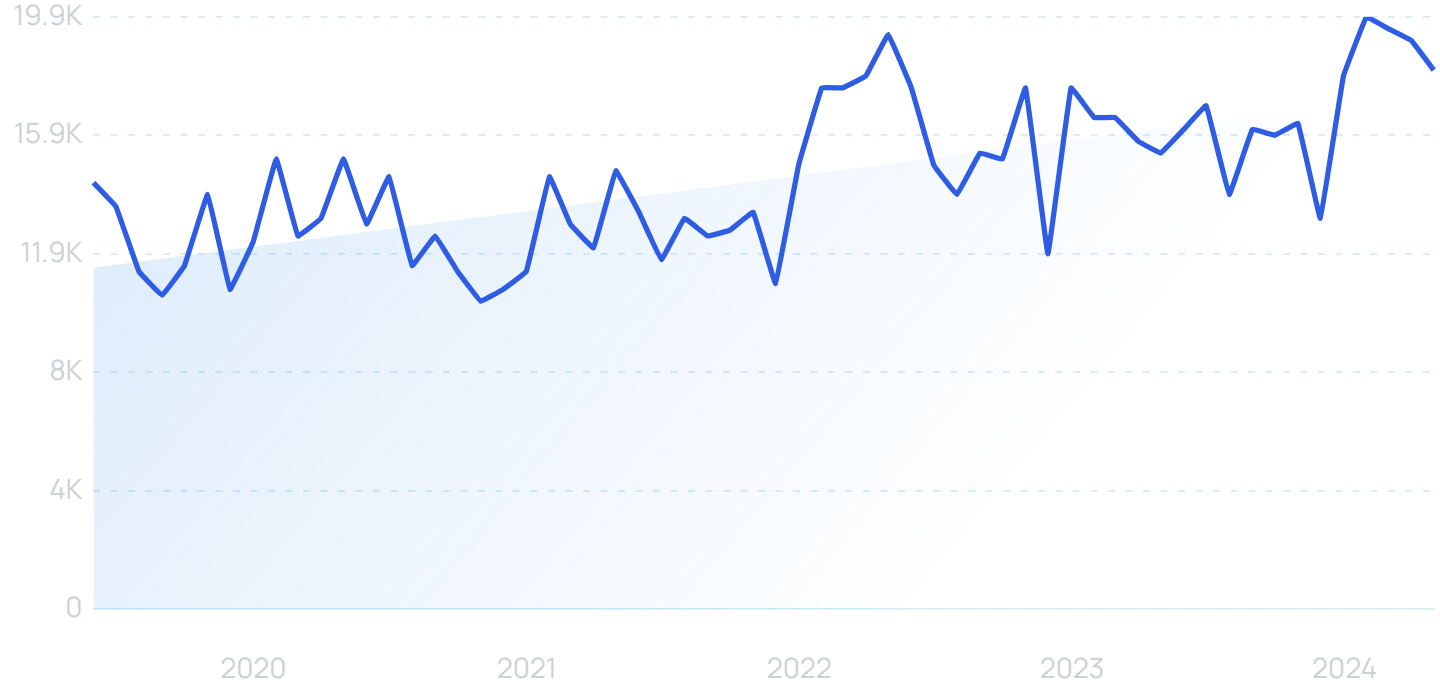
6. Subscription Services: A Growing Market
The subscription model is thriving, with a 90% year-over-year increase in subscribers. From gaming to streaming services, consumers are drawn to the convenience and variety these subscriptions offer.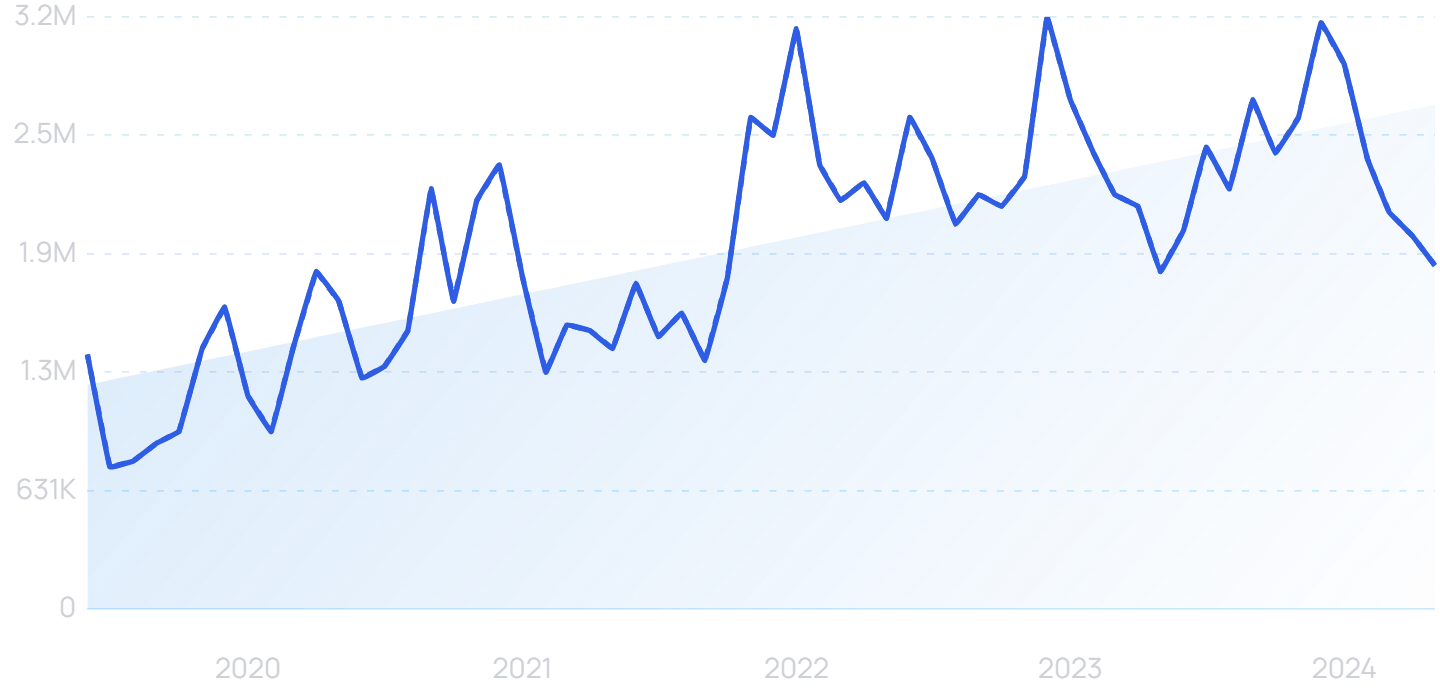
7. Elevated Spending on Pets
Pet owners are increasingly investing in luxury products for their furry companions. The pet industry is witnessing a surge in demand for items like CBD for dogs and high-end pet furniture.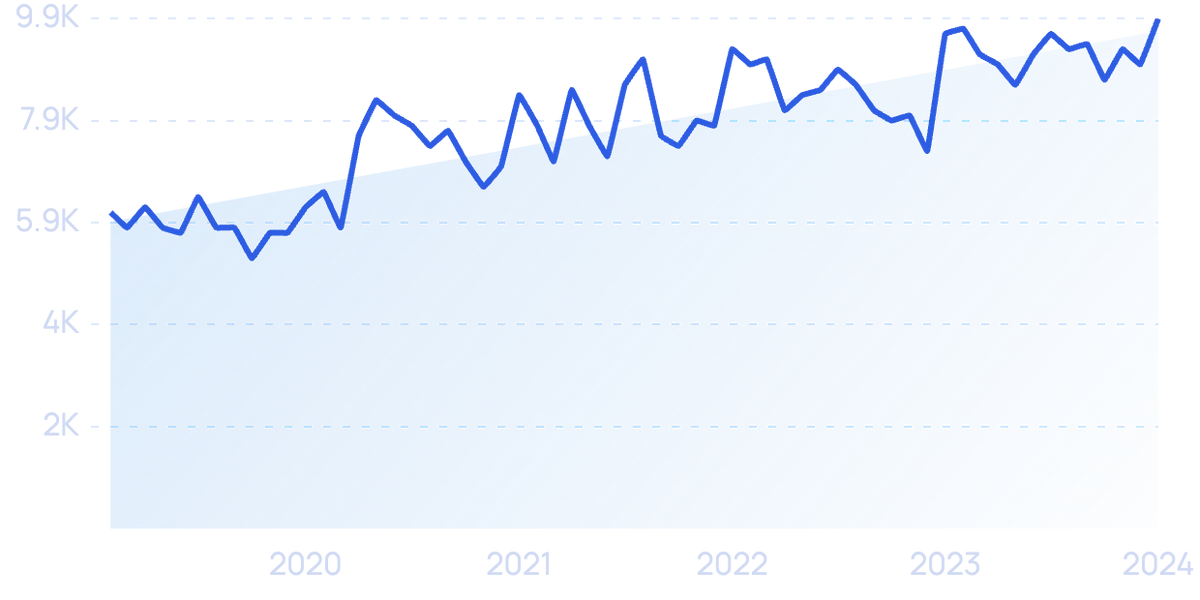
8. The Expanding Mindfulness Market
With the global meditation market projected to reach $9 billion by 2027, mindfulness practices are becoming mainstream. Apps like Calm and Headspace are leading the charge in providing accessible mental wellness solutions.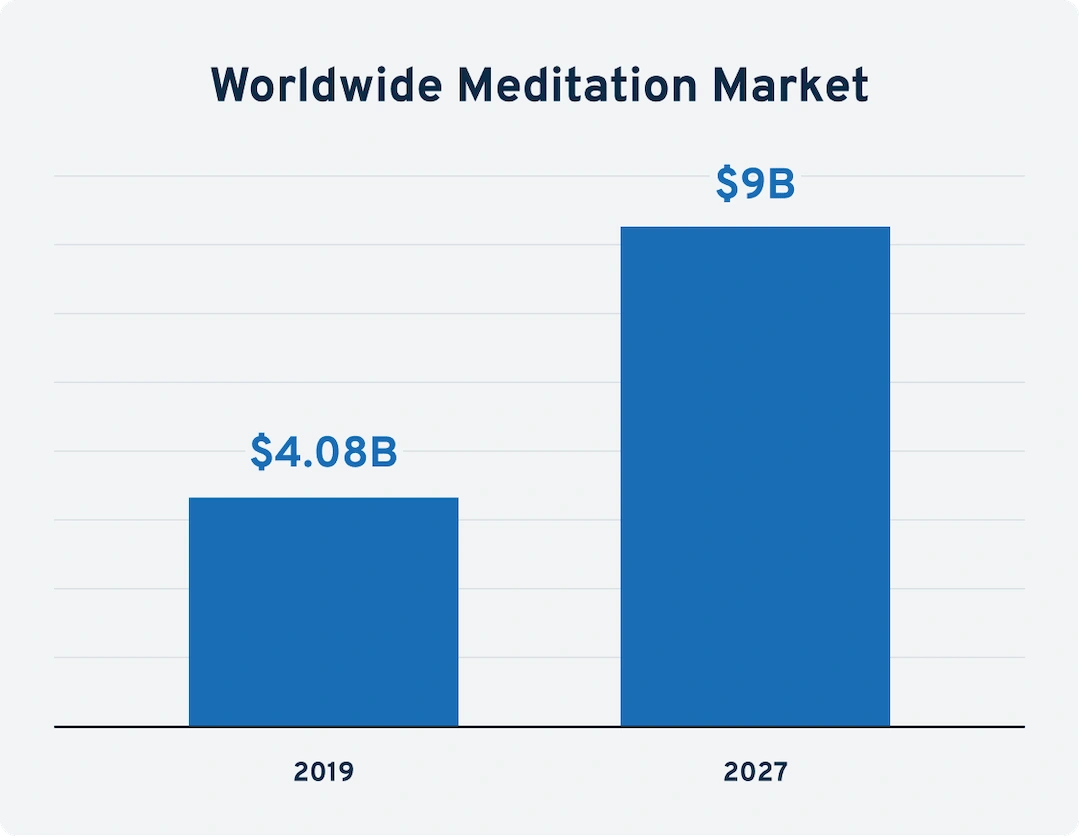
9. The Home as the Central Hub
With more people working remotely, the home has evolved into a multifaceted hub for work, leisure, and security. This has spurred interest in products like smart doorbells and air fryers, enhancing both convenience and functionality at home.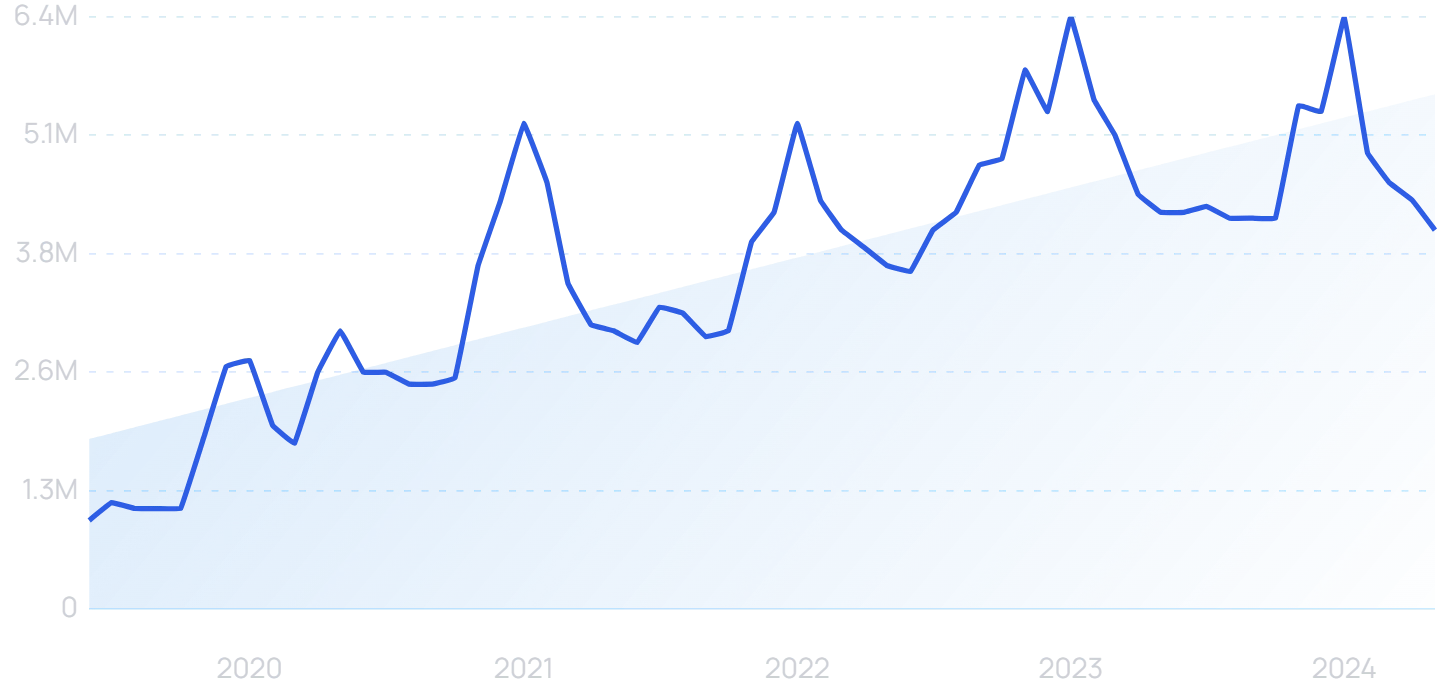
Conclusion
These trends highlight a consumer landscape increasingly focused on convenience, sustainability, and enhanced home environments. As brands navigate this evolving terrain, understanding these shifts will be crucial in meeting consumer expectations and driving future growth. “`
Discover more from Cameron Academy
Subscribe to get the latest posts sent to your email.
Top CRM Solutions for Real Estate in 2024
Top CRM Solutions for Real Estate
Leading the pack is Freshsales, celebrated for its intuitive interface and advanced AI forecasting. With a starting price of $15 per user per month, it offers a customizable experience that caters specifically to the needs of real estate professionals. Freshsales stands out with its mobile app features and automation capabilities, although some lead generation tools are reserved for enterprise plans. For more insights, you can read the full Freshsales review.
Another notable mention is HubSpot CRM, which provides a competitive free plan. Its modular approach allows real estate agencies to start with zero costs, adding features as needed. HubSpot’s integration with over 300 third-party applications makes it a flexible choice for various workflows. Explore the HubSpot CRM review for more details.
Zoho CRM is an excellent option for those already utilizing Zoho’s suite of products. With prices starting at $14 per user per month, it offers seamless integration with other Zoho apps. Zoho CRM is particularly lauded for its social media scraping tool, which aids in lead generation. Delve deeper into Zoho’s offerings through the Zoho CRM review.
Specialized and Budget-Friendly Options
For project management enthusiasts, Insightly provides a robust platform with integrated tools and over 250 app integrations. Although its interface may seem overwhelming initially, the potential for workflow automation is significant. Insightly is detailed further in the Insightly review.
BoomTown, designed specifically for realtors, offers real-time property updates and extensive lead-generation features. Although it lacks some integrations, its realtor-focused tools make it a valuable asset for those in the industry.
Choosing the Right CRM
When selecting a CRM, consider factors such as lead generation capabilities, customizability, and automation features. Whether you’re a small agency or a large brokerage, there is a CRM solution tailored to your needs. For a comprehensive comparison, visit the best CRM software guide.
Conclusion
The best CRM solutions for real estate in 2024 are not just about managing contacts but transforming how agencies interact with clients. By leveraging these tools, real estate professionals can enhance client satisfaction, reduce operational costs, and ultimately drive sales growth.
Discover more from Cameron Academy
Subscribe to get the latest posts sent to your email.
Understanding the Current Landscape of Investment Property Interest Rates
Understanding the Current Landscape of Investment Property Interest Rates
In today’s real estate market, understanding the nuances of investment property loans is crucial for both seasoned investors and newcomers alike. The average cost of a house in the U.S. stands at $420,800, making loans an essential tool for many aspiring property owners. These loans not only enable investors to leverage their investments but also offer potential tax benefits.However, not all loans are created equal. The type of investment property loan you choose can significantly impact the interest rates you pay. For example, house hacking allows investors to take advantage of owner-occupied mortgage rates, which are generally lower than those for traditional investment properties.
Current Interest Rates at a Glance
According to a recent analysis from SparkRental, interest rates for investment properties are notably higher than those for homeowner mortgages. For instance, conventional 15-year fixed-rate loans range from 5.87% to 6.95%, while 30-year fixed-rate loans vary between 5.8% and 8.27%. These rates are influenced by numerous factors, including credit scores and loan-to-value ratios.Creative Financing Options
For those looking to explore beyond conventional loans, various creative financing strategies are available. Owner financing offers a unique opportunity to negotiate directly with sellers, potentially securing more favorable terms. Similarly, the BRRRR strategy allows investors to refinance short-term hard money loans into long-term portfolio loans.Another innovative approach is fractional real estate ownership, which provides an alternative for those seeking passive investment opportunities without the hassle of traditional financing.
The Role of Credit Scores
Your credit score plays a pivotal role in determining the interest rates you receive on investment property loans. A higher score not only opens doors to more favorable rates but also expands your financing options. Therefore, improving your credit score should be a top priority for anyone serious about real estate investing.Final Thoughts
Navigating the world of investment property loans can be daunting, but understanding the landscape can empower you to make informed decisions. Whether you opt for conventional loans or explore creative financing methods, the key is to align your strategy with your investment goals. As the market continues to evolve, staying informed about the latest trends and rates will be crucial for maximizing your returns.For more insights on investment property interest rates, visit SparkRental.
Discover more from Cameron Academy
Subscribe to get the latest posts sent to your email.
SEO for Real Estate Agents: Unlocking Local Leads and Traffic
SEO for Real Estate Agents: Unlocking Local Leads and Traffic
In the ever-evolving digital landscape, real estate agents are increasingly turning to local SEO to enhance their online presence and attract clients within their specific geographic areas. As highlighted in a recent article by 23 Window Media, optimizing websites for location-based keywords such as “real estate agent in [your city]” or “[your neighborhood] homes for sale” is crucial for success.
Creating Neighborhood-Specific Landing Pages
One key strategy explored involves developing dedicated landing pages for each neighborhood or community served. These pages not only showcase an agent’s expertise but also highlight local market data, featured listings, and insider knowledge about the community. By offering valuable, hyper-local content, agents can attract more targeted traffic and establish themselves as the go-to experts in their respective neighborhoods.
Leveraging Local Partnerships
The article also emphasizes the importance of forming strategic partnerships with local businesses and organizations. Collaborations such as sponsoring community events, hosting neighborhood open houses, or working with local home staging companies can significantly boost an agent’s visibility. These partnerships not only enhance online presence but also reinforce an agent’s reputation as a community expert.
Trends and Insights
The trend towards hyper-local content and community engagement is becoming increasingly vital for real estate agents aiming to become the preferred choice in their targeted communities. By focusing on these strategies, agents can enhance their online visibility and drive more leads and traffic to their realtor websites.

Discover more from Cameron Academy
Subscribe to get the latest posts sent to your email.
Revolutionizing Real Estate: The AI Tools Transforming the Industry
Revolutionizing Real Estate: The AI Tools Transforming the Industry
In an era where technology is reshaping industries, the real estate sector is no exception. A recent article from HousingWire highlights how Artificial Intelligence (AI) tools are becoming indispensable for real estate agents, equipping them with capabilities that were once unimaginable.

AI’s Role in Real Estate
AI tools, such as ChatGPT, have already made their mark by providing real estate professionals with a means to streamline operations. However, the true game changers are the predictive analytics and data-driven marketing tools that are transforming the way agents generate leads and manage their resources.
Noteworthy AI Tools
- Top Producer’s Smart Targeting: This AI tool uses predictive analytics to identify potential sellers, integrating seamlessly with a CRM that agents are familiar with.
- Offrs + RAIA AI: Offers a blend of predictive analytics and a patented AI chat tool, providing an edge in lead nurturing and conversion.
- Virtual Staging AI: Known for its realistic virtual staging capabilities, allowing agents to select furniture styles and revise until satisfied.
- Reimaginehome: Provides virtual staging and customization options, free for up to 30 images monthly.
- Canva: A versatile graphic design platform with AI features to enhance marketing material creation.
- Lofty’s AI Assistant: Facilitates lead conversion and nurturing through AI-driven campaigns.
- Real Geeks’ Geek AI & SEO Fast Track: Enhances search engine rankings with AI chatbots and SEO tools.
Enhancing Customer Interaction
AI is not just about efficiency; it’s about enhancing customer service. By automating routine tasks, agents can focus on building meaningful relationships with clients. Tools like Roof AI and Structurely are leading the charge in AI-powered client engagement, ensuring that potential leads are nurtured from the moment they express interest.
The Future of Real Estate
As AI continues to evolve, its integration into the real estate sector promises not only to boost operational productivity but also to refine client interactions. By freeing agents from mundane tasks, AI tools allow them to focus on what truly matters—providing exceptional service and fostering client relationships.
For more insights into how AI is revolutionizing real estate, visit the original article on HousingWire.
Discover more from Cameron Academy
Subscribe to get the latest posts sent to your email.
Jersey City Emerges as Top Pick for 2024 Apartment Investments
Jersey City Emerges as Top Pick for 2024 Apartment Investments

In an unexpected turn of events, Jersey City, New Jersey, has claimed the spotlight as the premier destination for apartment investments in 2024, according to the Urban Land Institute’s (ULI) annual “Emerging Trends” report. This finding defies the narrative of population decline in the broader New York City area, highlighting the resilience and appeal of the apartment market.
Jersey City’s ascent to the top of the investment charts reflects a broader shift in investor sentiment that began in 2022. As rent growth slows in Sunbelt markets, where apartment construction has surged, attention has turned to the Northeast and Midwest, where rent growth remains strong. This shift is underscored by the fact that New York City, despite losing approximately 468,000 residents between 2020 and 2022, maintains a low vacancy rate of about 2.5%, as reported by Cushman & Wakefield.
Sam Tenenbaum, a multifamily economist at Cushman & Wakefield, explains, “New York City is the tightest market in the country from a vacancy standpoint, so renters are being pushed out to New Jersey, which has some of the strongest rent growth in the country at the moment.”
The Big Apple’s Population Puzzle
While New York City has seen a significant population decline, the demand for apartments remains robust. The city’s population, now at 8.33 million, is down from 8.8 million in mid-2020, yet the metro area, including Jersey City, still boasts 19.6 million residents. Tenenbaum attributes this paradox to household growth driving apartment demand, coupled with limited new construction and nominal job growth.
Interestingly, the ULI report indicates a muted enthusiasm for apartment investments in 2024 compared to 2023, largely due to higher interest rates. However, the Northeast and Midwest are leading the nation in rent growth, making them attractive targets for investors.
Investment Trends and Recommendations
In ULI’s survey, 61% of respondents recommended buying in Jersey City for 2024. Brooklyn, which topped the list last year, received a 53% buy recommendation for the coming year. Other notable mentions include Madison, Wisconsin, and Columbus, Ohio, which are also gaining investor interest.
Conversely, many Sunbelt metro areas have fallen out of favor. Cities like Jacksonville, Tampa, and Miami did not make the ULI’s top 20 list, leaving West Palm Beach as the sole representative from Florida. This shift highlights a changing landscape in real estate investment, where performance is now being measured against national standards.
For a deeper dive into these trends, you can read the full Forbes article by Richard Lawson.
Discover more from Cameron Academy
Subscribe to get the latest posts sent to your email.
Corruption and Money Laundering in the U.S. Real Estate Market
The real estate market has increasingly become a focal point for discussions on corruption and money laundering. This sector, particularly in the United States, offers a unique combination of stability and opacity, making it an attractive avenue for illicit activities. Major cities such as Miami, New York, and San Diego have emerged as hotspots for these activities, where corrupt actors can easily launder illicitly obtained funds through property purchases.
The U.S. Real Estate Market: A Haven for Corruption
As Treasury Secretary Janet Yellen highlighted in 2021, the United States provides an appealing environment for hiding and laundering ill-gotten gains. This is largely due to the lack of stringent regulations on cash transactions and beneficial ownership declarations. The U.S. Treasury Department’s Financial Crimes Enforcement Network (FinCEN) has identified the commercial real estate market as particularly vulnerable to money laundering, especially by sanctioned individuals such as Russian oligarchs.
The complexity and opacity of ownership structures in these transactions pose significant challenges for financial institutions tasked with detecting illicit activities. The anonymity provided in these transactions further facilitates the concealment of illicit wealth, allowing corrupt individuals to invest in high-value properties without the risk of their illegal activities being uncovered and punished.
Proposed Regulatory Changes
In response to these challenges, the Biden administration’s 2021 Strategy on Countering Corruption aims to close these loopholes. A proposed rule, anticipated to take effect in early 2024, will mandate real estate professionals to report the identities of beneficial owners in non-financed residential property purchases. This rule seeks to make permanent the temporary geographic targeting orders (GTOs) that currently require title insurance companies to disclose the natural persons behind shell companies in high-value cash transactions in select metropolitan areas.
These proposed changes are expected to enhance transparency, deter money laundering, and address sanctions evasion. As the U.S. and its allies continue to impose sanctions against Russian aggression, strengthening anti-money laundering measures in the real estate sector is crucial to combating illicit finance and safeguarding national security.
The Role of Real Estate Data
Real estate data can be instrumental in detecting potential money laundering and other criminal activities. Access to comprehensive property-related data—including legal and beneficial ownership, historical ownership information, and transaction details—can help authorities, journalists, and activists identify red flags indicative of corruption.
In 2017, Transparency International conducted an analysis focusing on anti-money laundering and corruption prevention mechanisms within the real estate sector across four key markets: Australia, Canada, the United Kingdom, and the United States. The report, titled “Doors Wide Open,” identified ten significant issues that allow corrupt individuals to anonymously purchase luxury properties and launder stolen money.
Despite these findings, the availability of critical real estate and beneficial ownership data remains limited. This lack of transparency means that much is still unknown about property ownership and whether these assets were acquired using illicit funds. The situation persists in the aforementioned markets, highlighting the ongoing challenge of combating corruption in the real estate sector.
Conclusion: Enhancing Transparency and Accountability
To effectively address corruption in the real estate market, it is crucial to enhance the availability and accessibility of real estate data. Strengthening anti-money laundering laws and ensuring transparency in property transactions can help expose and deter corrupt practices, ultimately fostering a more accountable and fair real estate market globally.
Advice and Suggestions
- For Real Estate Professionals: Stay informed about regulatory changes and ensure compliance with new rules regarding beneficial ownership reporting.
- For Policymakers: Consider implementing stricter regulations and enhancing data transparency to deter illicit activities in the real estate sector.
- For Investors: Conduct thorough due diligence and seek properties with clear ownership histories to avoid potential legal complications.
References
- Real Estate in 2024 – Anticipating a Crackdown on Corruption & Fraud – Institute for Financial Integrity
- Transparency International’s 2021 assessment of the US real estate sector
- Time to Clean House: Unpacking the Harms of Massive Money Laundering in the Real Estate Sector
- Global Financial Integrity Report
- Transparency International U.S. Report
- Real estate data: Shining a light on the corrupt – Transparency.org
- Doors wide open: Corruption and real estate in four key markets
Discover more from Cameron Academy
Subscribe to get the latest posts sent to your email.
Navigating the Threats: How to Identify and Avoid Real Estate Scams
Real estate transactions are often complex and fraught with potential pitfalls, making them a prime target for scammers. Whether you’re buying, selling, or refinancing, it’s crucial to be aware of the various scams that could impact your financial well-being. This guide provides an in-depth look at some of the most common real estate scams and offers tips on how to protect yourself.
Understanding Common Real Estate Scams
1. Wire Fraud Scam
Wire fraud is a significant threat in the real estate sector. Scammers often pose as real estate agents or other trusted parties to trick buyers into wiring funds to fraudulent accounts. These scams can be particularly challenging to detect as scammers use sophisticated software to mimic legitimate email addresses and phone numbers.
Protection Tips: To safeguard yourself, always verify wiring instructions through a trusted phone number and stay on the call during the transaction. Never rely solely on email communications for such sensitive transactions.
2. Foreclosure Relief Scam
Homeowners facing foreclosure are often targets of scammers who promise to stop the process or modify loans for an upfront fee. Unfortunately, victims not only lose money but also remain at risk of losing their homes.
Protection Tips: Avoid paying upfront for services that have not been completed. Verify the legitimacy of individuals or companies offering help by checking attorney credentials through state bar websites.
3. Loan-Flipping Scam
This scam involves convincing homeowners to refinance their mortgages repeatedly, incurring high fees and reducing home equity. Seniors, who often have significant equity, are particularly vulnerable.
Protection Tips: Work only with trusted lenders and consult with family or friends before making financial decisions. Always read the fine print and understand all terms before agreeing to refinance.
4. Messages From Fake Buyers
Scammers may send unsolicited messages to homeowners, pretending to be interested buyers to extract personal information. This can lead to identity theft or other forms of fraud.
Protection Tips: Protect yourself by working with a trusted real estate agent who can vet potential buyers. If you are selling on your own, be prepared to do thorough background checks on interested parties.
General Tips to Avoid Real Estate Scams
Awareness and diligence are key to avoiding these scams. Always verify the identity of individuals and companies you are dealing with, and consult trusted professionals when in doubt. Here are some additional tips:
- Use trusted real estate professionals and check their credentials.
- Be wary of deals that seem too good to be true.
- Keep your personal information secure and be cautious about sharing it.
- Stay informed about the latest scams and tactics used by fraudsters.
By staying informed and vigilant, you can protect yourself from becoming a victim of real estate scams. Always take the time to verify information and consult with trusted professionals before making any significant financial decisions.
For more detailed information on real estate scams, consider visiting the following resources:
- Rocket Mortgage – Avoid These 7 Dangerous Real Estate Scams: Offers a comprehensive overview of prevalent scams and practical advice on protection.
- Bankrate – 5 Common Real Estate Scams: Highlights warning signs and provides actionable steps for safeguarding against scams.
- National Cybersecurity Alliance – 5 Common Real Estate Scams You Need to Know About: Focuses on cybersecurity aspects and suggests methods to enhance security.
Discover more from Cameron Academy
Subscribe to get the latest posts sent to your email.
South Florida Housing Market: A Resilient Ecosystem
South Florida Housing Market: A Resilient Ecosystem
The South Florida housing market continues to defy expectations, thriving amidst challenges that could have hindered its progress in 2024. Known for its allure to retirees and snowbirds, the region has now emerged as a global investment hub and cultural epicenter.Economic Indicators and Projections
Economic forecasts for South Florida suggest a potential decline in mortgage rates to 6.6% by the end of 2024. This reflects anticipated Federal Reserve actions aimed at easing inflation. Further projections indicate a drop to 5.7% by 2025, potentially invigorating interest from buyers in the lower- and mid-priced segments.Single-Family Homes vs. Condos
Sales trends highlight robust activity in the single-family home sector, with an expected 7.8% increase in sales volume. However, the condo market may face stagnation, attributed to potential maintenance fee hikes and regulatory impacts from the Florida Building Safety Act.Price and Market Dynamics
The median single-family home price is predicted to rise by 6.9% in 2024. Luxury properties above $1 million maintain a stronghold in the market, with areas like Miami-Dade, Broward, and Palm Beach seeing a surge in high-value property transactions.Migration and Employment Impact
Southeast Florida continues to attract new residents due to its absence of state income tax and vibrant lifestyle offerings. This influx sustains demand across various housing sectors, ensuring a lively market supported by strong business and employment growth. With a projected 2.4% job increase in 2025 and tax incentives through the Florida Business Rent Tax, South Florida positions itself as a favorable destination for both domestic and international investors.Conclusions: A Market Poised for Growth
Despite potential obstacles, the South Florida housing market is poised for continued expansion through 2025. Lower mortgage rates and sustained economic conditions are expected to support a recovery in home sales, with luxury markets leading the charge.For further insight and detailed analyses, readers are encouraged to explore the original article, which provides in-depth knowledge of the current and future states of the South Florida housing market. Additional perspectives can be found in the Miami Association of REALTORS® Report and Finance Yahoo.
Discover more from Cameron Academy
Subscribe to get the latest posts sent to your email.
Top Places in Florida for Real Estate Investment: Insights and Opportunities
Florida’s real estate market is a dynamic landscape, offering a plethora of investment opportunities. Known for its sunny weather, vibrant cities, and diverse economic growth, Florida continues to attract real estate investors from across the globe. In this article, we delve into the top places in Florida for real estate investment, providing insights into their unique characteristics and potential returns.
Jacksonville: An Underrated Gem
Jacksonville stands out as a prime location for real estate investment due to its affordability, urban and coastal lifestyle, and diverse employment prospects. As the largest city by land area in the United States, Jacksonville is experiencing significant growth and development, especially in downtown and oceanfront suburbs. With a median property price of $321,000 and a median rental income of $1,350 monthly, it offers affordable suburban living with access to city amenities and strong rental demand. Learn more about the potential of Jacksonville from Jacksonville Real Estate Investment.
Orlando: The Theme Park Capital of the World
Orlando is a key player in the real estate market, driven by its thriving tourism industry and diverse property options. Known as the “Theme Park Capital of the World,” Orlando boasts significant population growth and job creation. With a median property price of $395,000 and a median rental income of $2,101 monthly, the city’s strong rental market is bolstered by millions of annual visitors, making it a lucrative investment opportunity. Discover more about Orlando’s real estate potential from Orlando Real Estate Investment. Watch a video about Orlando here.
Tampa: A Thriving Economic Hub
Tampa offers a robust environment for real estate investors, particularly those interested in long-term rentals. Renowned for its beaches and low cost of living, Tampa has a median property price of $430,000 and a median rental income of $2,300 monthly. With a high renter fraction and a growing population, Tampa is an attractive city for real estate investment. Explore more about Tampa’s real estate market from Best Places to Invest in Real Estate in Florida 2025 | Mashvisor. Watch a video about Tampa here.
St. Augustine: Historical Charm Meets Modern Living
St. Augustine, known as the nation’s oldest city, offers a unique blend of historical charm and modern economic stability. The city attracts tourists and students year-round, providing a steady rental market. Its diverse industries, including tourism and healthcare, ensure a strong real estate market, making it an appealing destination for investors.
Miami: A Coastal Metropolis
Miami is a major coastal metropolis that attracts people seeking favorable tax rates and warm weather. With a median property price of $589,000 and a median rental income of $3,700 monthly, Miami has seen significant real estate appreciation. The city’s vibrant lifestyle and high percentage of properties occupied by renters make it a promising location for investment.
Additional Noteworthy Locations
- West Palm Beach: With a median property price of $947,714 and a monthly long-term rental income of $3,386, West Palm Beach offers a strong rental market with a favorable cash on cash return of 3.66%. Learn more from Best Places to Invest in Real Estate in Florida 2025 | Mashvisor.
- Fort Lauderdale: Known for its vibrant city center and job market, Fort Lauderdale has a median property price of $625,000 and a median rental income of $3,334 monthly, making it a promising location for investment.
- St. Petersburg: With cultural attractions and waterfront views, St. Petersburg has a median property price of $770,176 and a monthly long-term rental income of $2,756.
- Winter Park: Offering a charming atmosphere and proximity to Orlando’s attractions, Winter Park has a median property price of $936,768 and a monthly long-term rental income of $3,191.
- Nokomis: Known for its serene environment, Nokomis has a median property price of $847,526 and a monthly long-term rental income of $3,095.
Investing in Florida real estate offers the potential for passive income and long-term financial growth. Whether you’re a seasoned investor or new to the market, Florida’s diverse real estate landscape provides opportunities for everyone. By understanding the unique characteristics of each location, investors can make informed decisions to capitalize on the state’s thriving real estate market.
Discover more from Cameron Academy
Subscribe to get the latest posts sent to your email.
Michael Cameron Sidawi: A Visionary Leader in Education and Technology
Discover more from Cameron Academy
Subscribe to get the latest posts sent to your email.
Discover more from Cameron Academy
Subscribe to get the latest posts sent to your email.

































